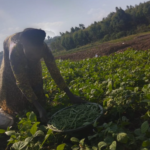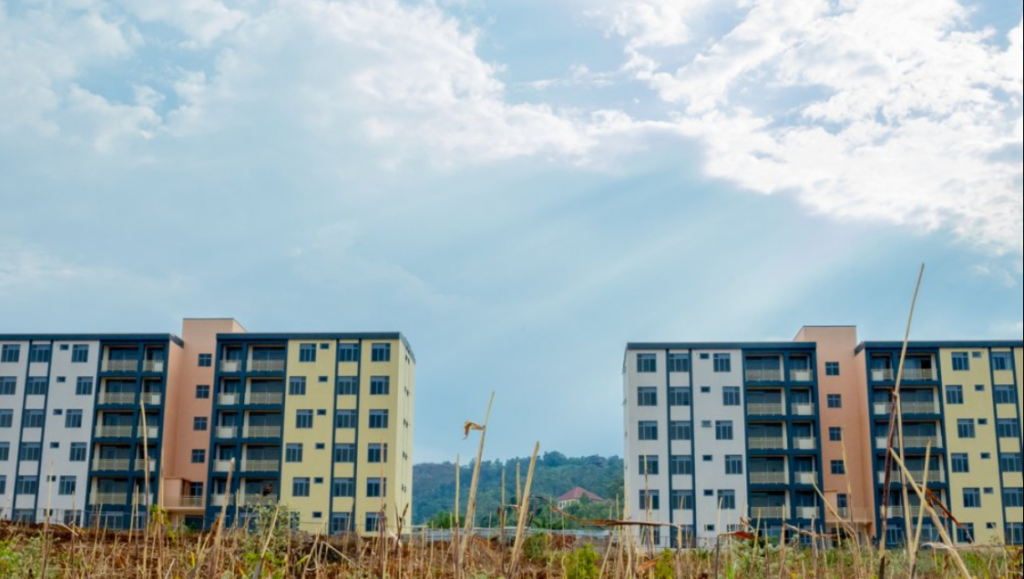The World Bank’s Rwanda branch reveals that between 2021 and 2023, 500,000 new jobs were created in Rwanda, leading to a 7% reduction in unemployment, which fell below 15% at the beginning of 2024. This is part of the 2023 report prepared by the World Bank’s Rwanda branch on the economic outlook (Rwanda Economic Update).
In this report, published on September 17, 2024, it shows that wholesale and retail trade accounted for 13% of these jobs, construction 10%, and transport and manufacturing 6% each. The report also highlights that women have benefited more from employment opportunities than men.
Shimene Ingabire is among those employed in housing construction during the three years covered by the report. She says: “The skills I acquire help me as a woman, enabling me to one day become an entrepreneur and provide jobs to Rwandans, especially the youth, who currently need employment the most.”
Clarisse Uwambayinema, who also found work in construction, states: “In construction, there are various roles; from bricklayers to site supervisors, project managers, and senior executives. I aspire to eventually become a technical manager at a major company or start my own construction firm.”
The World Bank’s 2023 report on Rwanda also shows that employers include investors in large supermarkets and companies adding value to potato production. They attribute this job growth primarily to the increased purchasing power of many Rwandans.
Alex Shyaka, Director of Sawa City, says: “Currently, we employ about 400 people, but we expect to reach 1,000 within the next year or two, and we plan to provide jobs in the provinces as well. Next year, we will open stores in four regions of the country, creating not just regular jobs but also imparting skills.”
Thi JS Boer, the director of Winnas, says: “We have already hired 60 people, especially in Musanze, where we operate a factory closely linked to farmers who supply us with potatoes for fries. As the market grows, the number of employees increases, especially since most of our workers are university graduates skilled in food processing. As our market expands, so do job opportunities.”
Agriculture accounts for a significant portion, making up 43% of all jobs, which contributed to the 7% reduction in unemployment since 2021, reaching 15% this year.
François Nsengiyumva, an agribusiness entrepreneur with a company called Kilimo General Business, says: “Agriculture has made great strides because, when you work in agriculture, you need employees. I currently have 22 permanent workers and more than 300 seasonal workers who work at least four months a year. These jobs help spread employment opportunities to many people. This has been driven by the government’s good policies, which provide a conducive environment for investment in agriculture. There is still room for improvement, but significant progress has been made, which has spurred job creation across the country.”
Dr. Calvins Zebaze, an economist at the World Bank’s Rwanda branch, notes that the labor market has grown over the past three years, mainly due to economic growth. He says: “Consumers in Rwanda’s market have remained confident, and this growth has largely been driven by the expansion of the private sector. Financial institutions have provided loans effectively, boosting the labor market, which has also contributed to lower prices in markets. All of these factors have played a role in increasing consumers’ purchasing power, which in turn has contributed to the growth of the national GDP.”
The country has made significant progress in the labor market after the COVID-19 pandemic, with job creation increasing by 5%, and the current job creation rate is 3% higher than it was before the pandemic.
Sectors that contributed less than 1% to employment include energy, water, waste management, telecommunications, agriculture, and entertainment.
Data from the National Institute of Statistics (NIS) shows that by May 2024, approximately 4,300,000 people were employed. Among them, 2,800,000 have permanent jobs out of the 8,100,000 people of working age.
In the second phase of the National Strategy for Transformation (NST2), it is expected that 1,250,000 jobs will be created between 2024 and 2029.









